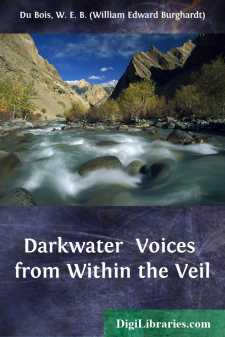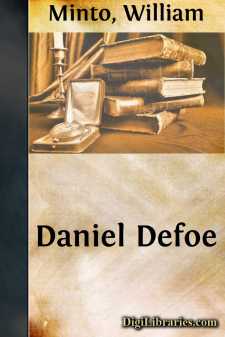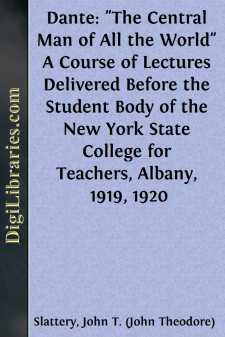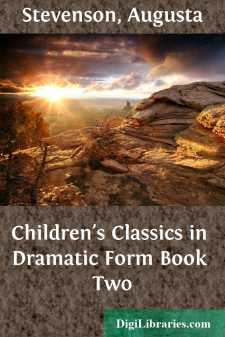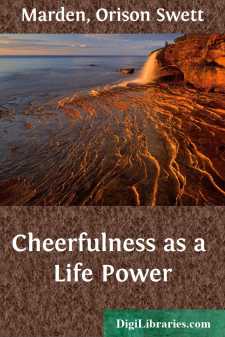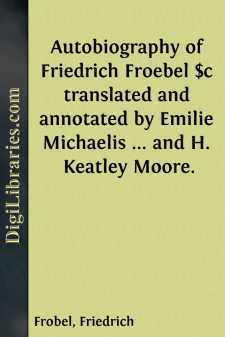Non-Classifiable
- Non-Classifiable 1768
Non-Classifiable Books
Sort by:
by:
Israel Zangwill
FOREWORD Mr. Arthur Davis, in whose memory has been founded the series of Lectures devoted to the fostering of Hebraic thought and learning, of which this is the first, was born in 1846 and died on the first day of Passover, 1906. His childhood was spent in the town of Derby, where there was then no Synagogue or Jewish minister or teacher of Hebrew. Spontaneously he developed a strong Jewish...
more...
I THE SHADOW OF YEARS I was born by a golden river and in the shadow of two great hills, five years after the Emancipation Proclamation. The house was quaint, with clapboards running up and down, neatly trimmed, and there were five rooms, a tiny porch, a rosy front yard, and unbelievably delicious strawberries in the rear. A South Carolinian, lately come to the Berkshire Hills, owned all this—tall,...
more...
by:
William Minto
CHAPTER I. DEFOE'S YOUTH AND EARLY PURSUITS. The life of a man of letters is not as a rule eventful. It may be rich in spiritual experiences, but it seldom is rich in active adventure. We ask his biographer to tell us what were his habits of composition, how he talked, how he bore himself in the discharge of his duties to his family, his neighbors, and himself; what were his beliefs on the great...
more...
DANTE AND HIS TIME To know Dante we must know the age which produced Christianity's greatest poet, he whom Ruskin calls "the central man of all the world, as representing in perfect balance the imaginative, moral and intellectual faculties, all at their highest." Other writers are not so dependent upon their times for our clear understanding of their books. Dante to be intelligible to the...
more...
JIM WAINRIGHT'S KID As I put down my name and the number of the crack engine of America—as well as the imprint of a greasy thumb—on the register of our roundhouse last Saturday night, the foreman borrowed a chew of my fireman's fine-cut, and said to me: "John, that old feller that's putting on the new injectors wants to see you." "What does he want, Jack?" said I....
more...
by:
Charles Kingsley
January. Welcome, wild North-easter! Shame it is to seeOdes to every zephyr: Ne’er a verse to thee.. . . . .Tired we are of summer, Tired of gaudy glare,Showers soft and steaming, Hot and breathless air.Tired of listless dreaming Through the lazy day:Jovial wind of winter Turn us out to play!Sweep the golden reed-beds; Crisp the lazy dyke;Hunger into madness Every...
more...
by:
Woods Hutchinson
I. WAKING UP If there is anything that we all enjoy, it is waking up on a bright spring morning and seeing the sunlight pouring into the room. You all know the poem beginning,— “I remember, I remember The house where I was born; The little window where the sun Came peeping in at morn.” You are feeling fresh and rested and happy after your good night’s sleep and you are eager to be up and out...
more...
THE CLEVER KID TIME: this morning. PLACE: a pasture. GRAY WOLF.WHITE WOLF.KID. [The GRAY WOLF and the WHITE WOLF are standing at the foot of a hill; at the top of the hill is a KID.] GRAY WOLF. Look, brother, there is a kid! WHITE WOLF. Where? Where? GRAY WOLF. On that hill to the south. WHITE WOLF. I do not see her. GRAY WOLF. She is on the very top. WHITE WOLF. Ah, now I see her! GRAY WOLF. I wish we...
more...
CHEERFULNESS AS A LIFE POWER. I. WHAT VANDERBILT PAID FOR TWELVE LAUGHS. William K. Vanderbilt, when he last visited Constantinople, one day invited Coquelin the elder, so celebrated for his powers as a mimic, who happened to be in the city at the time, to give a private recital on board his yacht, lying in the Bosphorus. Coquelin spoke three of his monologues. A few days afterwards Coquelin received...
more...
by:
Friedrich Frobel
INTRODUCTORY. The year 1882 was the centenary of Froebel's birth, and in the present "plentiful lack" of faithful translations of Froebel's own words we proposed to the Froebel Society to issue a translation of the "Education of Man," which we would undertake to make at our own cost, that the occasion might be marked in a manner worthy of the English branch of the Kindergarten...
more...



